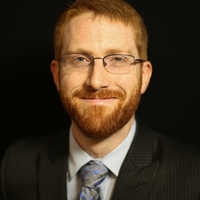Mark C Lewis
University of Pennsylvania, Educational Linguistics, Graduate Student
- Educational Linguistics, Language and Ideology, Language Ideology, Language Education, Education, Language and Education, and 11 moreLinguistics, Discourse Analysis, Applied Linguistics, Ethnography, Literacy, Language Governmentality, Metapragmatics, Metacommentary, Citizen Sociolinguistics, Critical Race Theory, and Critical sociolinguisticsedit
- My main interests are language ideologies, language among learners, and language in schooling.edit
This article assesses the historical failures and limits of the dominant ‘error correction’ approach within sociolinguistics. The error correction approach supposes that social change can be achieved when knowledge is shared by... more
This article assesses the historical failures and limits of the dominant ‘error correction’ approach within sociolinguistics. The error correction approach supposes that social change can be achieved when knowledge is shared by researchers with the public or figures of institutional authority. This article reviews reflections on sociolinguists’ work toward social change, especially those of Labov, through scholarship in language ideologies and critical race theory. From a language ideological and critical race perspective, error correction is limited in its engagement with marginalizing representations of language because it does not jointly address material conditions and social positions supported by these representations. Exemplifying these limitations, sociolinguistic error-correction efforts that address the evaluation of language practices racialized as Black may have unfortunately distracted from social change agendas that confront material and institutionalized racism directly. To address these limitations, this article highlights existing critical reflexive scholarship that explicitly interrogates disciplinary assumptions.
Research Interests:
Within mathematics education in the United States, educators and scholars have worked to identify ways of using language that students of mathematics must perform. I describe how mathematics educators from 1650–1945 have argued whether or... more
Within mathematics education in the United States, educators and scholars have worked to identify ways of using language that students of mathematics must perform. I describe how mathematics educators from 1650–1945 have argued whether or how language is important for learning and doing mathematics. Framing these arguments as a form of language policy and planning, I apply intertextual research methods (Johnson, 2015) and the framework of enregisterment (Agha, 2007) to present explicit and implicit policy and planning for math language as intertextually linked models of linguistic behavior. I also summarize the gradual development of math language alongside wider shifts in the structure and philosophy of education in the United States. While early attention to language and mathematics learning did not produce expectations for student language use, student-regulating models of math language eventually solidified through the context of progressive education scholarship in the early 20th century.
Research Interests:
A professor and students in an undergraduate honors research seminar were inspired to playfully link old and contemporary literacy theories to a 2.0 media artifact, the popular YouTube video Kittens! Inspired by Kittens! (KIbK) starring 6... more
A professor and students in an undergraduate honors research seminar were inspired to playfully link old and contemporary literacy theories to a 2.0 media artifact, the popular YouTube video Kittens! Inspired by Kittens! (KIbK) starring 6 year-old Maddie. In this article KIbK is theorized drawing on frames of school-based reading instruction, social identities, identity formation in communities of practice, Bakhtin’s theory of intertextuality, and Bourdieu’s theory of social reproduction. The authors found that KIbK was a powerful touchstone and Vygotskian tool for their project of linking theory to practice. They found that pre-digital literacy theories designed for paper texts were appropriate and useful to understanding web-based media such as KIbK. This interpretive project also supported the seminar’s goal of learning to see and appreciate the value of literacy practices in places that were previously invisible, such as on YouTube and in children and adults everyday creative human endeavors. Participants also found KIbK to be a powerful medium for constituting the seminar as a community of practice.
Research Interests:
The genre of the five paragraph essay (5PE) is familiar to many US high school and middle school students because it is often included in the teaching of literary analysis and general argumentation. Learners of the 5PE participate in its... more
The genre of the five paragraph essay (5PE) is familiar to many US high school and middle school students because it is often included in the teaching of literary analysis and general argumentation. Learners of the 5PE participate in its social life consisting of its learning, change, and spread. In this paper, I present a description of some of the online social life of the 5PE. Examining online metapragmatic commentary under theoretical frames of speech genres (Bakhtin, 1986), enregisterment (Agha, 2007), and language governmentality (Flores 2014; Pennycook 2002, 2006), and with the new methodology of citizen sociolinguistics (Rymes & Leone, this volume), I show how numerous instances of metapragmatic commentary on the 5PE, regardless of their positioning, reinforce a governmentality that constructs the 5PE as a practice totally dependent on authoritarian specifications.
